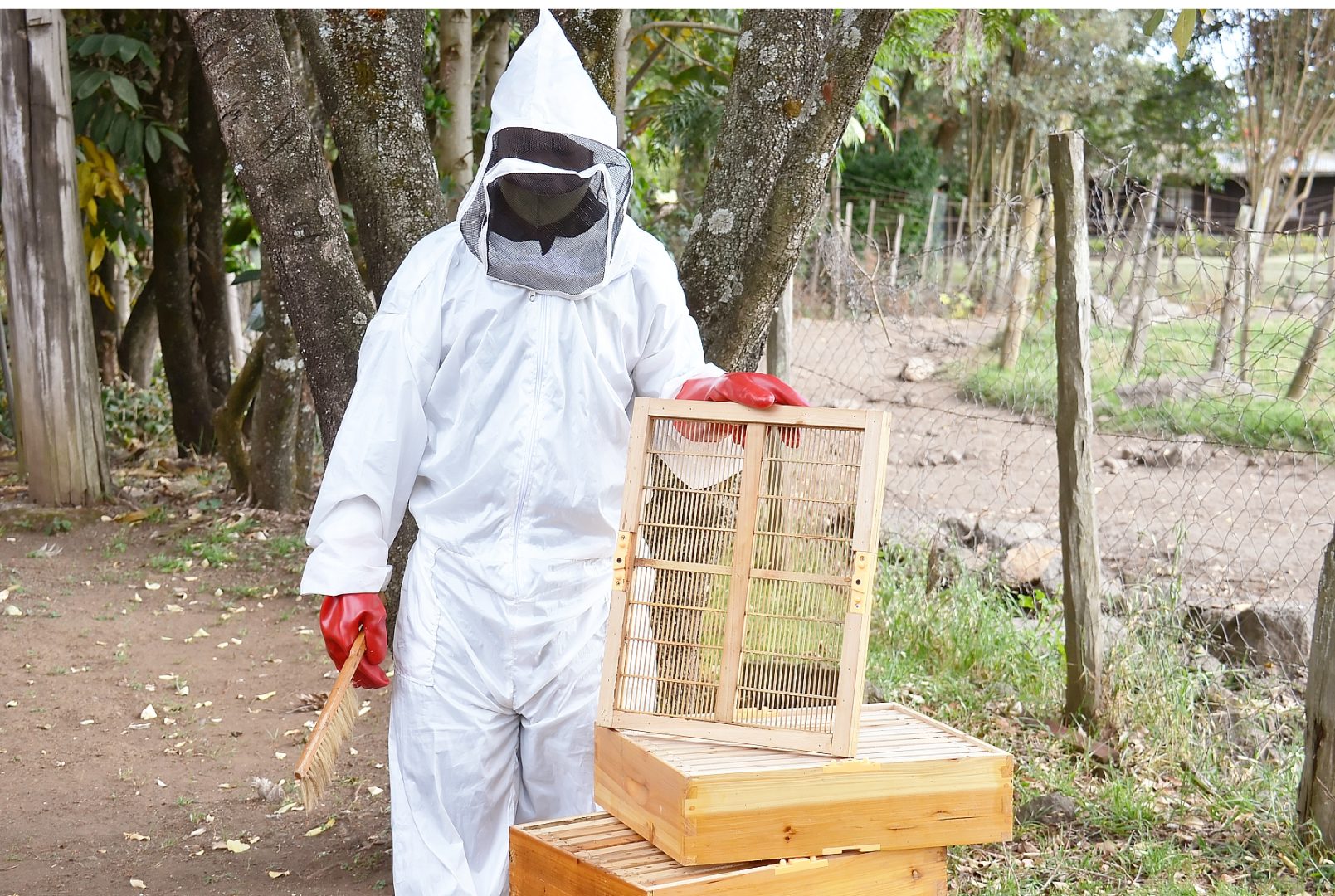It’s no doubt that 2020 was a bad year for business, what with the pandemic wreaking havoc worldwide and forcing businesses to suspend their operations due to uncertainties. However, while many companies were hurting, some small businesses were picking up and seeing many new and returning customers.
Businesses such as EJs Foods were just starting out and unbeknownst to the owners, Martin Mwangi Muriuki and his wife, it was uniquely suited to the pandemic, and has since seen an uptick in demand.
EJs Foods is a family-owned business that deals in honey, coffee, and peanut by products. The honey arm of the company was started in April 2020, almost a month after the first local case of coronavirus was confirmed in March 2020.
“We got into the honey business by default because we are coffee farmers and we put up beehives to help in fruit setting. We learnt through a lot of research how bees can help, so we set up the beehives. Then eventually we began to hear complaints about the quality of honey in the market. So, we thought if the bees can help in fruit setting, we can also get raw honey,” says Mr. Muriuki.
With a background in sales and marketing, Mr. Muriuki knew what it would take to sell the honey.
Their first harvest was 40kg. They bought an additional 60kg and packaged into jars. However, Martin’s wife had reservations about the 100kg of honey because it was at the height of the pandemic and people were less inclined to spend money.
“At first my wife complained saying: ‘You wasted money, why did you buy all this honey, who’s going to buy it? It’s Corona time. I don’t see us making money from this,” Mr. Muriuki recalls laughing. “The first day, we packed them in boxes, put them in our car and we went around hawking our honey.”
We sold 45 jars of honey on the first day, on the second day we sold more than 20 and by the fourth day we had finished selling all of it,” he says.
From selling honey packaged in jars that did not even have labels, EJs Foods has grown to making online sales and this year marked one of its first major milestones – signing an agreement to supply honey to one of Nairobi’s leading hotels.
They’ve also set up apiaries in Laikipia and Baringo through a Community Based Organisation (CBO) called Walker Beekeepers. The business, as is inevitable, has had a few bumps on the road.
Mr. Muriuki says they sold a lot of honey through social media, word of mouth and referrals, and they constantly ran out of honey which meant they had to get more form a third party.
“We didn’t know how bad the quality of honey is out there. We got fake honey; people who have mixed bananas with sugar and put syrup. We had a rough time. By the time we go to know what is needed in terms of testing we had lost clients as well because most people ran away when we got a bad batch and sold it to them. Eventually we did more research and discovered that the government through KIRDI offered extension services to bee farmers and even honey packers. We paid for incubation for SMEs and they taught us how to test and check out good honey,” says Mr. Muriuki.
There is big demand for honey due its nutritional and medicinal value. Unfortunately, this demand cannot be met by the existing market and has opened doors for adulteration of honey which is sold as the real deal.
Pauline Otila Kamwara, Managing Director of Apiculture Venture, a beekeeping business, says honey is one of the most adulterated products not just in Kenya but in the world.
Brokers in the honey business, she says, are one of the reasons it is difficult to get pure honey.
“Adulteration can take place between the broker and the buyer. You don’t know if he is going to adulterate it to increase the volume of the honey so that they can in turn increase their profit margins. Once you sell your honey to them, they pack it and brand it as their own. And because most people really want to sell, they won’t question who they are selling to,” she says.
To address this problem, she says the beekeeping industry needs umbrella bodies/associations to help weed out quack honey suppliers and shine a light on legitimate honey producers.
Pauline has been in the honey business since 2018, her research in the industry, however, began in 2013 when she got an opportunity to go to Israel, visit different bee farms and benchmark Kenya’s beekeeping sector against Israel.
In 2018, she finally went commercial with Apiculture Venture with a push to produce pure honey “where I have control of what I’m producing.” The company is involved in honey production, training on modern beekeeping, offering pollination services, and packaging.
One of its biggest clients is Bidco who they’ve worked with in a sunflower pollination project, pollination their various small holder farmers’ crops.
Apiculture Venture also gives the farmers they work with a ready market for their honey including other by products such as propolis, pollen and wax.











